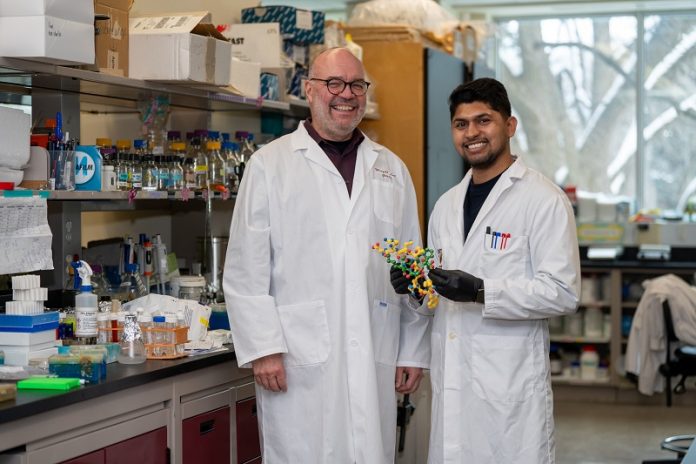
For the first time in nearly 30 years, scientists have discovered a brand-new class of antibiotics — and it could be a game-changer in the fight against drug-resistant infections.
Researchers at McMaster University in Canada have found a promising new molecule called lariocidin, which has shown the power to kill even the toughest bacteria.
The discovery was published on March 26, 2025, in the journal Nature.
This breakthrough comes at a critical time. Many antibiotics we rely on are becoming less effective because bacteria are evolving ways to resist them.
This growing problem, known as antimicrobial resistance (AMR), is considered one of the biggest global health threats today.
According to the World Health Organization, AMR causes around 4.5 million deaths each year.
“Our current antibiotics are losing their power,” explained lead researcher Gerry Wright, a professor at McMaster’s Department of Biochemistry and Biomedical Sciences.
“Lariocidin works in a brand-new way, which makes it very exciting.”
The molecule is a lasso peptide, meaning it has a unique shape and action. Lariocidin shuts down bacteria by attacking their protein-making machinery in a way that no other antibiotic has done before. This fresh method makes it especially effective against bacteria that have become resistant to existing drugs.
The story of its discovery is just as fascinating. Wright’s team collected a soil sample from a backyard in Hamilton, Ontario, and let the bacteria inside it grow in the lab for nearly a year. This long process allowed them to find slow-growing bacteria that might normally be overlooked. One of these bacteria — from the Paenibacillus family — produced lariocidin.
“When we realized how it killed other bacteria, it was a true breakthrough moment,” said Manoj Jangra, a postdoctoral researcher in Wright’s lab.
Even more encouraging, lariocidin has ticked all the right boxes so far: it’s safe for human cells, it works in animal infection tests, and it doesn’t seem to be affected by the common tricks bacteria use to resist drugs.
Now, the team is working to improve the molecule and figure out how to make it in large enough amounts for future testing and, hopefully, medical use.
“The discovery was amazing,” said Wright. “But now the real work begins to turn this into a useful drug that can save lives.”
If you care about health, please read studies about the best time to take vitamins to prevent heart disease, and vitamin D supplements strongly reduce cancer death.
For more health information, please see recent studies about plant nutrient that could help reduce high blood pressure, and these antioxidants could help reduce dementia risk.



